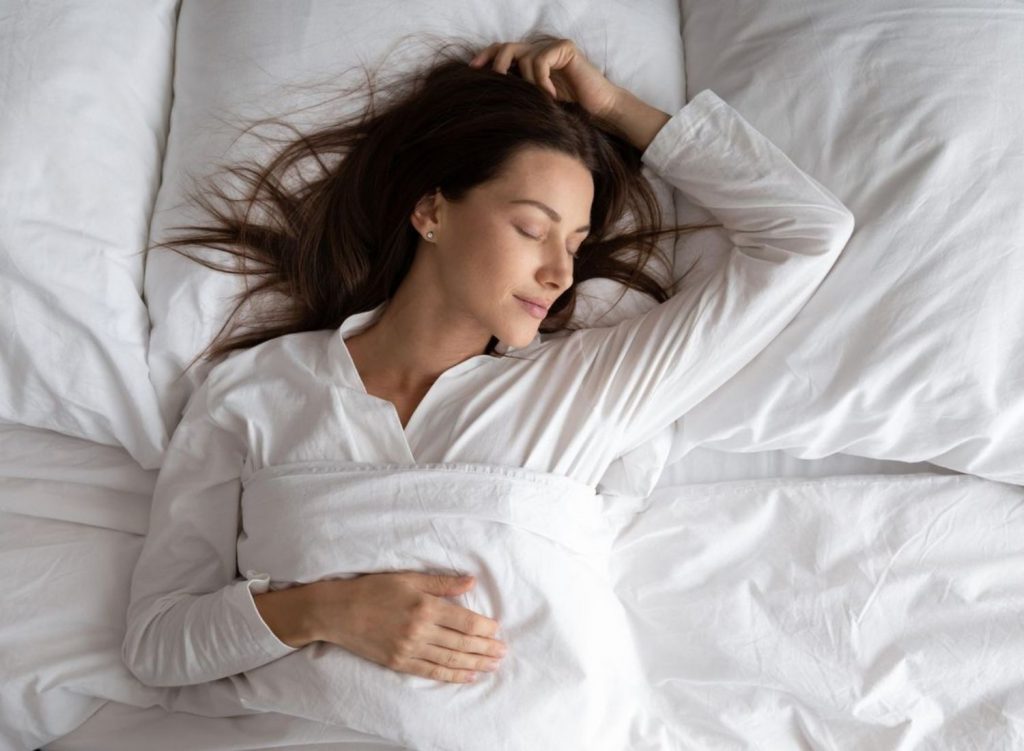Getting enough rest is meaningful just as following exercise and a balanced diet routine to boost your fitness. Many unhealthy lifestyle habits indirectly disturb your mental and physical peace, subsequently. But following good habits for a sound sleep will get your life back on tracks as a proper sleep solves almost all problems.
There is also one saying, “sleep is that golden chain that ties our health and bodies together.”
Good Habits For A Sound Sleep
1. Be Regular With Your Bedtime Schedule

For a good and energetic morning, one should need at least 6-8 hours of sleep. Pick a bedtime and a wakeup time and adhere to that routine as much as possible, whether it’s weekends or weekdays.
If you feel awake after going to bed for a few minutes, get up, and do some relaxing things such as reading or listen to soothing music. If you are consistent with the sleep-wake cycle, after several weeks, you may not need an alarm.
2. Keep Distractions Out Of Bed In A Daytime

Daytime relaxation is beneficial after stressful work. Limit your nap for up to 30 minutes; otherwise, you will struggle at night. Most importantly, irregular napping may negatively affect your internal sleeping clock. However, some people don’t experience disrupted sleep even after having good daytime naps.
3. Exercise Regularly

Exercise contributes to more restful and sound sleep. Daily workout rules out your insomnia and makes you energetic throughout the day. But remember to avoid it before bedtime; it raises the hormonal level of adrenalin, which enhances the strength of the body and keeps you active.
4. Set Consistent Meal Times

Consumption of heavy meals can lead to poor sleep. Do not forget that the type of drink or meal also matters. Plan to finish your dinner before 2 to 3 hrs of your bedtime. Your body needs a relaxing time to digest the food properly.
5. Get Relaxed And Take A Shower

Taking a night shower helps to relax your body and sleep faster, especially in summer. If you don’t want to take a full bath, bath your legs in hot water for relieving effects.
6. Avoid Caffeine At Night

Caffeine stimulates the nervous system and so enhances your energy level. Therefore, it is recommended to avoid drinking coffee 4-5 hrs before bedtime; caffeine can stay elevated in your blood for 5-6 hours, especially if you are caffeine sensitive. If you crave coffee late evening, go with a decaffeinated one.
7. Avoid Consuming Alcohol/Other Liquids Before Bedtime

When you have alcohol in your body, you may not sleep for very long. Consuming alcoholic drinks at night may interfere with your melatonin production responsible for your body’s circadian rhythm.
Altered melatonin production affects your sleep pattern, and higher alcohol consumption increases the chances of sleep apnea and snoring. You may experience various sleep problems such as vivid dreams, nightmares, sleepwalking parasomnias, and breathing problems. Try to reduce any fluid intake 1-2 hours before bedtime as it causes frequent urination and disturbs your sleep.
8. Increase Bright Light Exposure To Kickstart Your Day

Our body has a natural time-keeping clock known as the circadian rhythm. This rhythm works by tricking your body when to sleep and awake. You should be getting out every morning to improve your sleep at night.
Natural bright light exposure such as sunlight keeps your circadian rhythm healthy, which results in increased energy level, improved sleep quality, and treat your insomnia. Therefore, try to get more sunlight and, if not possible, at your place, use bright light devices. Indeed their intensity is extremely low compared to the sun.
9. Reduce Blue Light Exposure In The Late Evening

Bright light exposure benefits during the daytime, but gives the opposite effect during night time because of the circadian rhythm. Decreasing the level of melatonin helps you to get a sound sleep; so, avoid using computers, smartphones, watching TV, and switch off the bedroom lights before heading to the bed.
10. Ensure Your Bedroom Environment For Optimal Night Sleep

Bedroom environment and setups are the key factors of quality sleep. To optimize your bedroom environment, minimize noise level, adjust artificial lights. Also, make sure your bedroom is clean, well-arranged, and a relaxing place.
11. Take Melatonin Supplements

Melatonin is a natural hormone promoting sleep as it regulates the body’s internal clock by signaling time for relaxation. Melatonin supplements may help you to treat a wide range of sleep disorders in people such as insomnia, shift work sleep disorder, and sleep issues in children.
- Insomnia
- Shiftwork phase disorder
- Jet lag
- Sleep difficulties with atopic dermatitis
- Sleep disorders relating to blindness
Melatonin dose may vary from person to person, but the ideal dose is 1-5 mg and should be taken 1 hour before bed.
Healthy Foods To Sleep Better
1. Tart Cherries

Tart cherries are one of the best fruits that promote sleep as they are natural sources of melatonin. You better choose sour cherries as they contain a double amount of melatonin compared to the sweet ones.
2. Bananas

Bananas are packed with vitamin B6 content, which increases your serotonin level. It has the amino acid L-tryptophan, which converts into serotonin and melatonin; serotonin is a mood changer, and melatonin calms down your mind. Bananas also have the potassium and magnesium, which relax overstressed muscles due to you are unable to sleep. Apples and pineapples also offer you a sound sleep.
3. Almonds And Walnuts

Nuts are an excellent source of melatonin, which prepares your body to sleep. They also can reduce the stress hormone cortisol, which interrupts your sleep. Therefore, have two almonds or walnuts during bedtime to improve your sleep quality.
4. Herbal Tea

Chamomile tea and passionflower tea are both herbal teas, which have the unique property that gives you a sound sleep. They contain the potential antioxidant apigenin, which falls you asleep. It treats depression symptoms associated with sleep problems. Drinking herbal tea is the worth trying option before bed to improve sleep quality.







